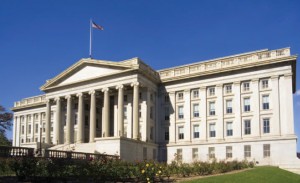Banks are pausing for thought after the latest controversy regarding sanctions concerning Iran. PAUL MELLY reports
If in doubt, stay out. That’s likely to be the watchword in future for banks wondering whether there is a legitimate means of serving customers linked to a country that is the subject of international sanctions.

This summer saw the New York State Department of Financial Services (DFS) subject Standard Chartered to a barrage of public vilification over its handling of Iran-related transactions – even before allegations of misconduct could be proven.
Stanchart saw its share price plunge as stockmarket investors fretted that it might be deprived of its New York banking licence.
Eventually, the bank came out of the incident with a $340m fine and an agreement to accept the presence in its offices of DFS monitors in its New York branch for a period of two years.
But the bank was still left to complete negotiations with other American regulators. And it faces the onerous task of regaining investors’ confidence, however unfairly it might have been lost.
This has been an episode to make banks across the Middle East pause for thought. The Islamic Republic is certainly not the region’s only market where controversy and, potentially, sanctions could come into play.
After the Stanchart affair, few financial institutions are likely to feel the risks merit the returns if there is even the slightest chance of running foul of a sanctions policy.
Rather than pick their way through the rules, identifying exactly what they are permitted or not permitted to do, many banks will probably decide that it is just simpler to rule out totally dealing with entities from any country affected by sanctions, however limited.
And even if senior executives believe they can master the technical challenges of compliance with complex and demanding restrictions, they may well be overridden by board directors determined to exclude even the tiniest risk that a hefty fine might be incurred or a valued US or European banking licence put in jeopardy.
Huge amounts can be at stake, depending on how complex technical rules are interpreted.
The New York State DFS alleged that $250bn in Stanchart transactions had been conducted illegally, whereas the bank initially admitted that a mere $14m in deals might have breached the regulations.
Read the law wrongly and you may discover that you are not a minor and occasional technical defaulter but a major corporate offender, contravening rules on a stupendous scale, with potentially devastating consequences for your banking business if the authorities step in.
Moreover, in terms of image and stock market confidence, the price for falling the wrong side of what is a finely drawn line can be hugely painful. After the DFS issued colourfully worded accusations against Stanchart – and before any charges had been proven or even brought before any form or court or public tribunal – the bank’s share price plunged by 16 per cent in a single day, although it later regained some of the lost value.
Other US regulators, notably at federal level, viewed the issues at stake in a much more nuanced way than the DFS. But their caution was not enough to reassure panicky investors fearful of the damage Stanchart would suffer if it lost the New York licence.
Complexity issue
At the heart of the Stanchart affair is the American use of financial sanctions to tighten the pressure on Iran as part of the international campaign to deter the Islamic Republic from developing a nuclear weapon.
Originally, the US imposed sanctions on Iran right back in 1979, in the aftermath of the Islamic Revolution and the seizing of hostages at the American embassy. Washington further toughened up its approach in 1995.
However, the rest of the international community took a radically different point of view, continuing to trade with Iran and maintain normal international financial relationships.
Where hitches did occur these related not to political differences but to economic problems, such as the payments crisis that ensued when Iran fell into arrears on letter of credit payments and was forced to reschedule its short-term trade debt. But most European export credit agencies were on cover for Iran, while BNP Paribas arranged a Eurobond issue.
For US banks and insurers, Iran was off limits altogether. Yet the governments of European, Middle Eastern and Asian countries had no objection to their financial institutions remaining engaged with Iran.
But this created a complex regulatory situation, because the US dollar is the main currency for trade in the Middle East and particularly for sales of oil, Iran’s main export and the main basis for its credit status.
In strict technical terms all transactions in the greenback are ultimately cleared through New York. And this gave the US the capacity to regulate any dollar deals with Iran, even where the main parties concerned were all based in other countries. New York is one of the world’s key financial centres, and most major international banks have an offshoot in the city – which, of course, falls under direct American regulatory authority.
For many years, Washington pursued a compromise approach that allowed non-US banks to continue US-dollar denominated business related to Iran, provided that the transactions did not actually start or end in the Islamic Republic. Instead, the international branches or subsidiaries of Iranian banks would often be involved.
These permitted transactions not formally rooted in Iran but still servicing Iranian entities were known as “U-turn” deals.
In November 2008, amidst intensifying concern about Iranian nuclear ambitions and support for militant groups in the Middle East, the US hardened its line to ban even these.
But until that time it had tolerated them – subject to certain safeguards.
 The regulator’s move against Stanchart related to the question of whether or not the bank in fact complied with these safeguard requirements. In particular, the US had insisted that banks handling U-turn deals must carry out due diligence checks to ensure that the Iranian entities concerned were not on any watch lists of organisations suspected of links to terrorism.
The regulator’s move against Stanchart related to the question of whether or not the bank in fact complied with these safeguard requirements. In particular, the US had insisted that banks handling U-turn deals must carry out due diligence checks to ensure that the Iranian entities concerned were not on any watch lists of organisations suspected of links to terrorism.
The DFS alleged that Stanchart did not comply and actually sought to conceal the identities of the Iranian outfits that it was dealing with. The bank disputed these accusations.
The affair highlights the difficulties facing banks when they try to continue working with high risk countries while complying with sanctions requirements.
Not only are the rules complex, but banks are not innocent until proved guilty. Instead, they have to demonstrate that they are definitely innocent and that they are meeting all the requirements.
Under US rules, the DFS did not need to prove that Stanchart had certainly acted in an illegal manner. It merely had to show grounds for concern that the bank might not satisfy safety and soundness standards, a much looser, general catch-all principle.
The fact that even Stanchart, a bank generally regarded as a stickler for compliance, could get caught up in such a controversy will be a warning to other banks, whenever contentious country deals are available.
Iran is already now off-limits for many banks. In March 2012, SWIFT, the international bank payments service, discontinued services for Iranian member institutions that are subject to European sanctions – a move that was unprecedented.
But the dilemmas arise when there is not yet international concensus on the stance to take and regulators in one country or regional bloc take an approach that is tougher than the view adopted by authorities elsewhere. When it comes to states such as Syria and Sudan, there is not always international agreement on whether or not to impose sanctions or how strict these should be.
As Stanchart has discovered, trying to navigate through these complexities risks being a costly business.
 Cash And Trade Magazine For Cash and Trade professionals in the Middle East
Cash And Trade Magazine For Cash and Trade professionals in the Middle East




